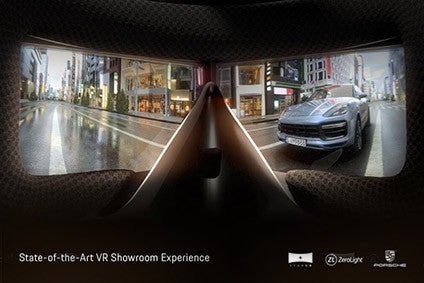Virtual reality (VR) and its cousin, augmented reality (AR) were previously niche facets of the gaming industry, but have been growing in popularity since COVID-19 lockdown orders were implemented in many countries as consumers seek out new forms of escapism closer to home. Of the USD300m of non-advertising revenue Facebook reported in Q1 2020, a large proportion of that was driven by the company’s Oculus virtual reality gaming offshoot demonstrating the technology’s growing importance.
However, it’s not just gaming where virtual and augmented reality – collectively known as extended reality (XR) –can make a big impact. Between social distancing guidelines and stay-at-home orders, many consumers will be more wary of visiting car dealerships to check out the latest models in person. This presents a perfect opportunity for extended reality technology to step up to fill this gap –enabling customers to get ‘hands on’ with their potential purchase from the safety of their own home, reducing the time they would spend interacting with car dealers, making the process safer overall.
As noted by GlobalData’sPrincipal Analyst Lynnette Luna, COVID-19 and the increased time consumers spend at home present a perfect opportunity to do more with XR technologies but it depends on consumers having access to hardware to access it. Currently, many XR headsets are very expensive and require additional costly computer hardware to run but, if Facebook and other developers manage to release an effective, lightweight, low-cost device in the near future, it could significantly increase thepotential audience for this technology.
Facebook may have taken an early lead with its Oculus headsets, but rival tech giants are snapping at its heels with competing products. Alphabet, Google‘s parent company, recently purchase Canadian AR developer North which, prior to the acquisition, had been selling its own AR ‘smart glasses’. North will now be absorbed into Google’s AR development network and will probably be central to any future developments of Google’s Glass AR headset. Other leaders in the XR space include Sony through its PlayStation divisionwith Samsung rumoured to be developing its own system after helping Facebook’s Oculus develop its first headsets. Apple, not to be left behind, is working on both a set of AR smart glasses and a full VR headset.
Naturally, auto manufacturers must also embrace the technology to make the most of it. They must create memorable, interactive and high-quality experiences in their virtual showrooms if they wish to convert consumers into paying customers. For manufacturers keen to advertise their digital prowess, a comprehensive XR showroom experience could become the first opportunity to demonstrate their technologies to customers and help set them apart from their competition.







